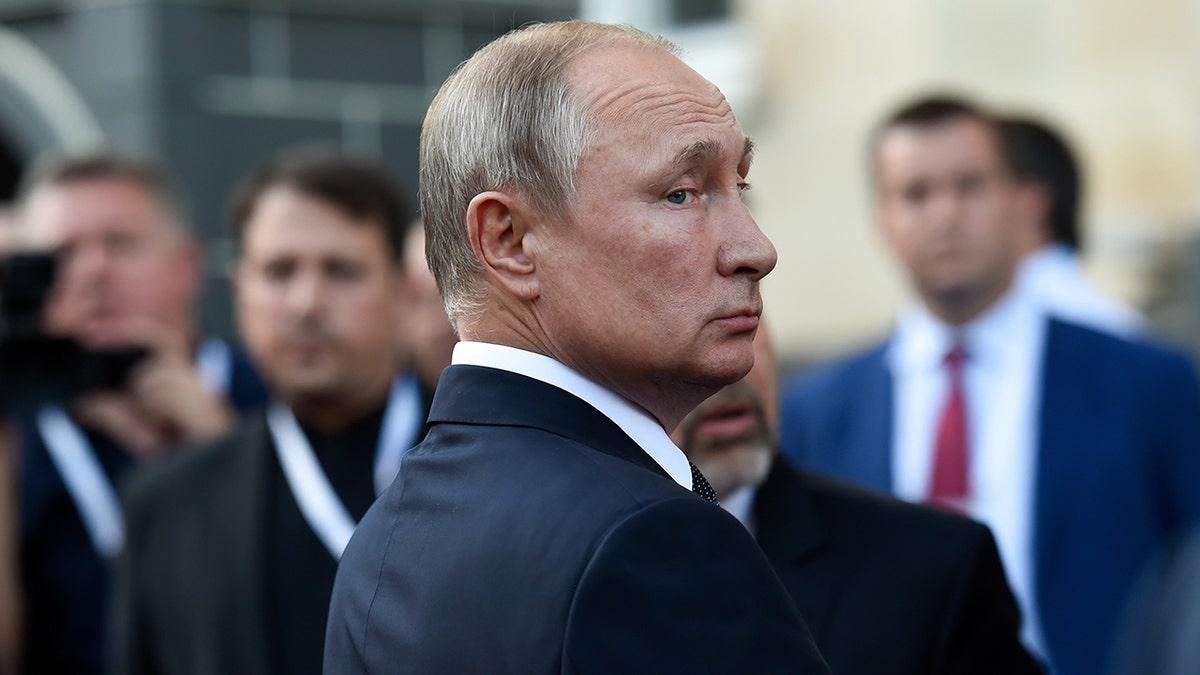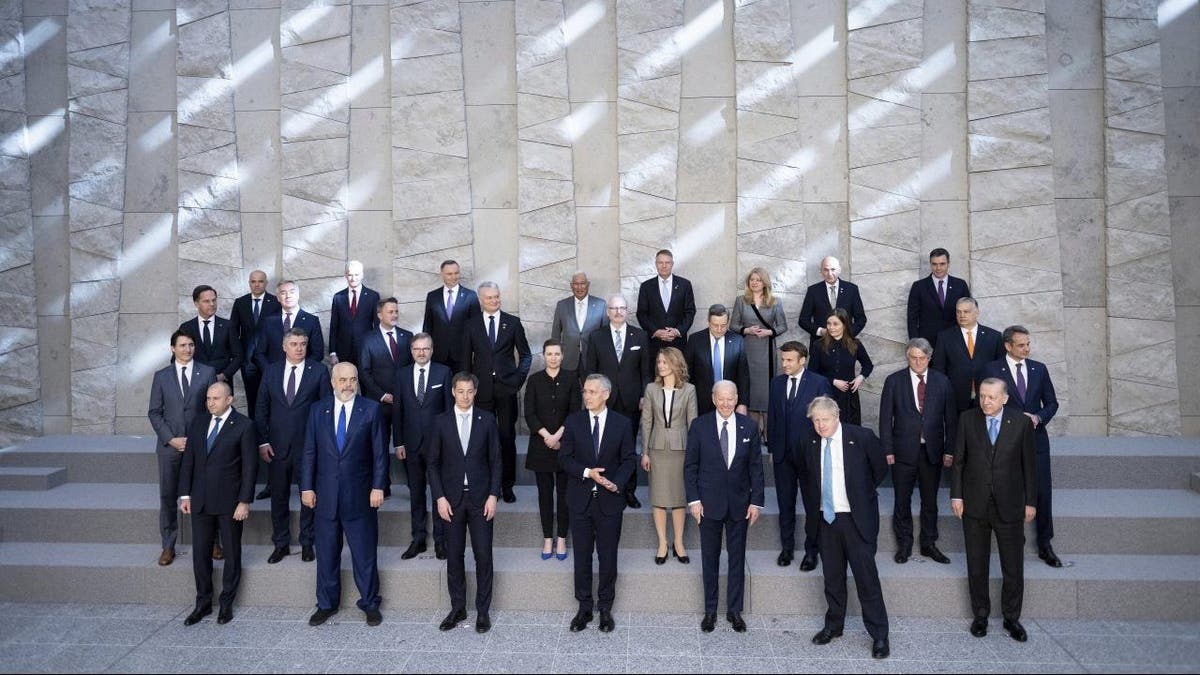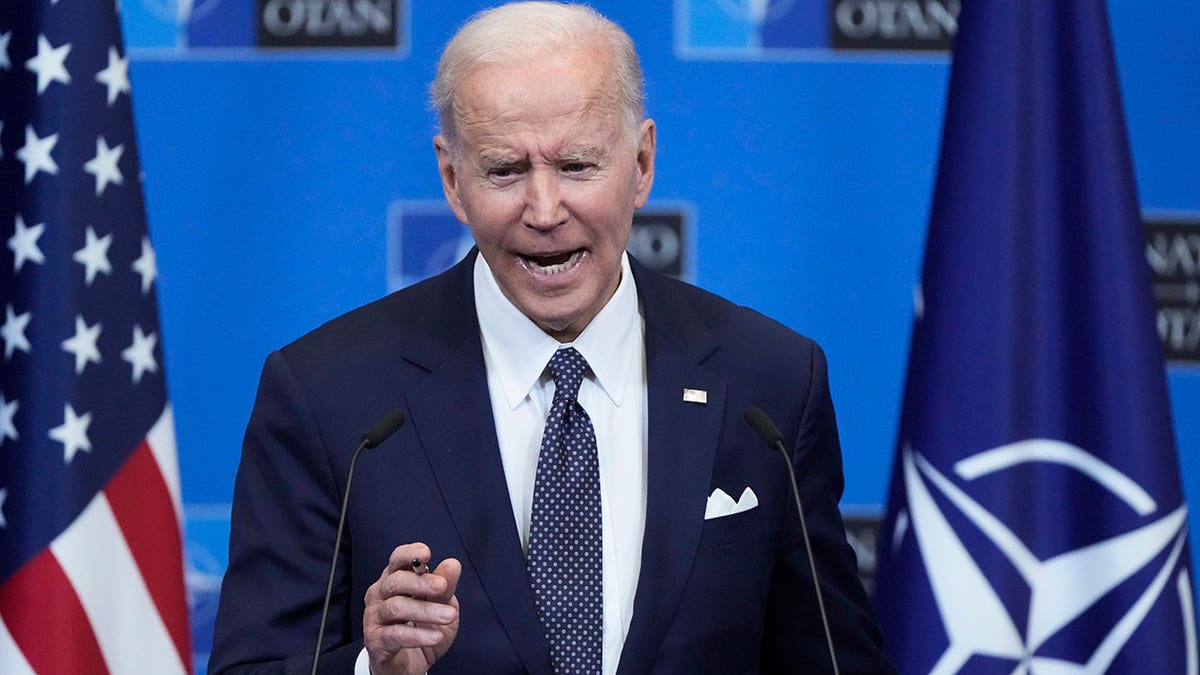White House warns about potential Russian cyber attacks
Fox News correspondent Gillian Turner discusses warning of cyber attacks and how some lawmakers are pushing for more U.S. support in Ukraine on ‘Special Report.’
Europe has seen the worst security crisis since World War II following Russian President Vladimir Putin’s deadly invasion into Ukraine last month, but security experts have warned that another threat is looming in the form of cyber warfare.
President Biden said this week that Russia is "exploring options" to target the U.S. and its allies through cyberattacks as tensions with Moscow remain precarious.
"The more Putin’s back is against the wall, the greater the severity of the tactics he may employ," the president said Monday. "One of the tools he’s most likely to use in my view, in our view, is cyberattacks."
"The magnitude of Russia’s cyber capacity is fairly consequential and it’s coming," he added.

Russian President Vladimir Putin attends a meeting of the Supreme Eurasian Economic Council in Yerevan, Armenia. (Shutterstock)
Under the 1949 North Atlantic Treaty, also known as the Washington Treaty, an attack on one member of the 30-nation alliance will be viewed as attack on all allied nations – a concept that applies to cyberwarfare.
But Biden’s national security adviser Jake Sullivan said this week that while a Russia-based cyberattack could prompt a NATO-wide reaction, it does not necessarily mean a military response will be activated.
"Any cyberattack that results in death or injury or damage is going to be a pretty important thing to which NATO must respond," former Deputy Assistant Secretary of Defense for Europe and NATO Michael Ryan told Fox News Digital.
Ryan explained that there are two types of cyberattacks that would likely prompt a unified response from NATO.
"One: on a civilian target that causes physical damage or, more importantly, causes loss of life or injury to NATO citizens," he said. "The other type of cyberattack that could necessitate a response is one that's purely military – targeting military capabilities."
Ryan said that while targeting military capabilities may be considered provocative and could be seen as a precursor to an invasion, it doesn’t necessarily mean that all NATO nations would in fact respond.
The NATO charter permits each nation to individually decide whether it will take action following an assault on an allied partner. Though the language of the treaty legally allows a militaristic response, including in the cyber domain, it does not require any nation to respond with military force.
The mounting threat of a cyberattack from Russia has prompted renewed questions over not only what would trigger a NATO response, but the manner in which the alliance would react.

First row from right, Turkey's President Recep Tayyip Erdogan, Britain's Prime Minister Boris Johnson, U.S. President Joe Biden, NATO Secretary General Jens Stoltenberg, Belgium's Prime Minister Alexander De Croo and leaders of the US-led military alliance, pose for a family photo at NATO Headquarters in Brussels, Thursday, March 24, 2022. (Brendan Smialowski, Pool via AP)
"On one hand is a very difficult bar to cross. On the other hand, once you cross that bar, it gives you a lot of options on how to respond," the NATO expert explained.
"It says an attack on one will be considered an attack on all. It says that each nation shall respond to that attack in the way they feel it's most appropriate," Ryan continued. "It doesn't necessarily mean a conventional military response, it could mean a cyber-response. It could mean a delayed response. It could mean a ‘coalition of the willing' within NATO – with NATO’s blessing – makes a response. And it could be a response anywhere in the world against Russian interests."
Ryan said that a NATO-authorized military response to a cyberattack remains unlikely for a number of reasons – one of which is it would likely require Moscow to openly take credit for an attack.
The NATO expert also noted that "every country has different procedures and different rules for how they attribute cyberattacks."
Cyberattacks from Russia are nothing new, and the U.S., along with several nations in Europe, have been hit with a slew of attacks from Russian criminal groups.
The FBI warned this week that Russia could be looking to hit U.S. infrastructure – a scenario that experts have routinely warned against.
But Ryan argued the bigger threat to NATO security is Russia’s continued use of disinformation to cause public discord.
"The greatest advantage the Russians have been exploiting for the last 15 years at least, particularly the last 10 years, has been to agitate Western populations so that we argue with each other and we become less unified," he said, arguing that one of NATO’s greatest assets is also one of its biggest vulnerabilities.
"NATO’s solidarity is its greatest strength," he added. "And every decision that NATO has taken is by a consensus of 30."
The NATO expert argued the Russians would only need to create chaos within one nation to potentially cripple the alliance altogether.

President Joe Biden speaks during a media conference, after a NATO summit and Group of Seven meeting, at NATO headquarters in Brussels. (AP Photo/Markus Schreiber)
Ryan argued the two most vulnerable states in NATO are Hungry and Turkey – largely due to their authoritarian ties with Putin.
"All the Russians need to do is create enough disinformation and chaos within Hungarian society to provoke [Hungarian Prime Minister Viktor Orbán] into not joining consensus with the alliance – then NATO becomes paralyzed can make can't make decisions," Ryan said.
CLICK HERE TO GET THE FOX NEWS APP
Ultimately the NATO expert said he does not believe Putin has the confidence in his military capability to go after the alliance with a serious cyberattack.
NATO Secretary-General Jens Stoltenberg said Thursday that NATO will bolster its defenses on land, in the air, at sea and in the cyber realm to counter the evolving security threat Russia poses in Europe.













































